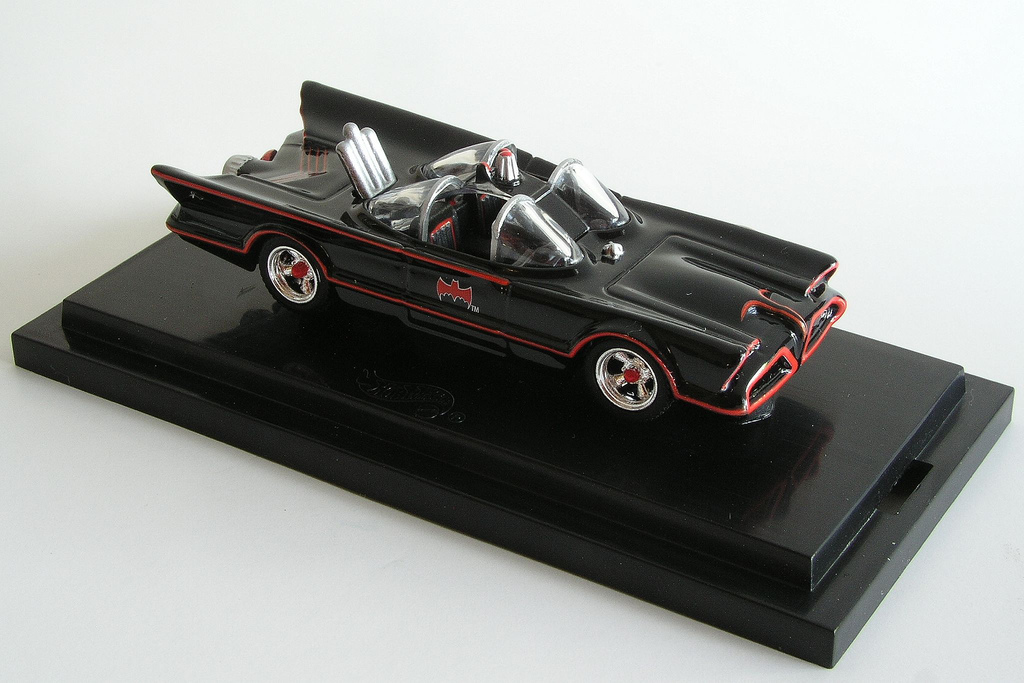Court Says The Batmobile Is Special Enough To Get Copyright Protection

A 1966 Batmobile (JOE WU)
The three-judge panel held [PDF] that the Batmobile — as seen in Batman comic books, TV shows and movies — was entitled to copyright protection because it’s basically its own character, albeit a four-wheeled one, and therefore “was a sufficiently distinctive element of the works.”
“Originally introduced in the Batman comic books in 1941, the Batmobile is a fictional, high-tech automobile that Batman employs as his primary mode of transportation,” wrote Judge Sandra Ikuta. “The Batmobile has varied in appearance over the years, but its name and key characteristics as Batman’s personal crime-fighting vehicle have remained consistent.”
Those consistent character traits are protected by copyright, Ikuta wrote in the unanimous decision.
“No matter its specific physical appearance, the Batmobile is a ‘crime-fighting’ car with sleek and powerful characteristics that allow Batman to maneuver quickly while he fights villains,” she wrote.
There’s no dispute over who has the right to sell Batmobile cars, either, as Ikuta notes that DC Comics owns a copyright interest in the Batmobile character, as it’s expressed in the 1966 TV show and the 1989 movie starring Michael Keaton, “because it did not transfer its underlying rights to the character when it licensed rights to produce derivative works.”
The panel held that the defendant’s replica cars — based on the same 1966 TV show and the 1989 movie — infringed on DC Comics’ copyrights. Ikuta notes that the defendant concedes that his replicas copy the designs of the Batmobile as depicted on TV and in the movie, “though they do not copy every feature.” Before DC brought its lawsuit, he advertised each replica as the “Batmobile,” the judge notes, though by his own admission, he is not not authorized by DC to manufacture or sell any products bearing DC’s copyright or trademark.
“My client just sells cars,” an attorney for the defendant told Reuters. “The car is not a character. The car is a car.”
DC Comics sued him for copyright infringement in 2011, and a lower court judge ruled for DC.
“As Batman so sagely told Robin, ‘In our well-ordered society, protection of private property is essential,'” Ikuta wrote, in what had to be a pretty fun decision to write.
In order to prevail on its claim for copyright infringement, DC Comics now has to prove that hat it owns a copyright in the Batmobile as it appeared in the 1966 television series and 1989 movie, and that the defendant infringed that copyright by creating unauthorized replicas.
This is a big win for the rather busy lawyer who’s represented DC Comics in this case — he’s currently the attorney for the plaintiffs suing makers of counterfeit Marvel, Star Wars and Hello Kitty Cake Frosting, also recently settled a lawsuit with the makers of Darth Vader cufflinks.
Want more consumer news? Visit our parent organization, Consumer Reports, for the latest on scams, recalls, and other consumer issues.

